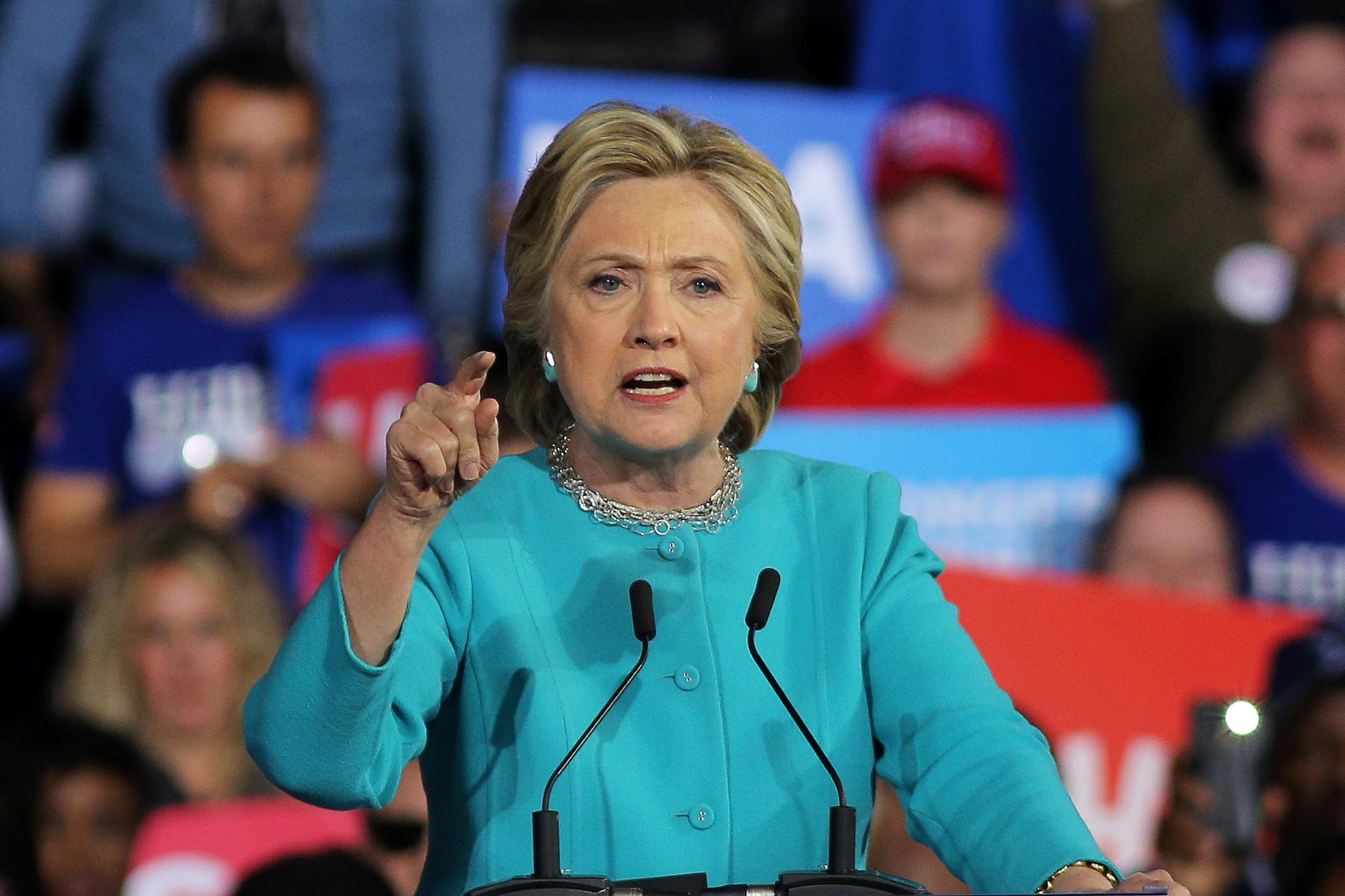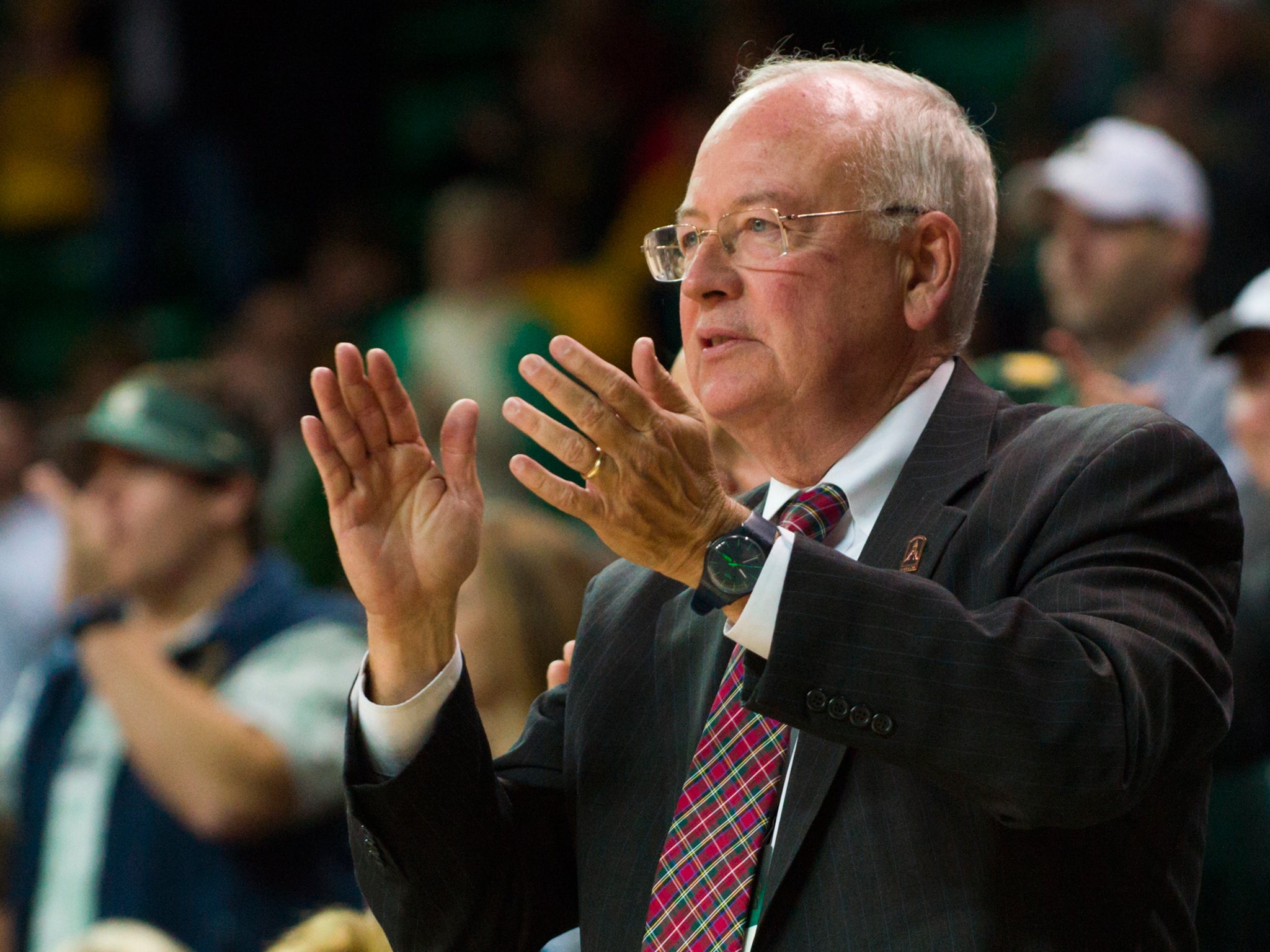Hillary Clinton: The imperfect candidate who struggled to match the populist touch of Donald Trump
She had baggage and struggled to connnect with voters. Even if to many she was the lesser of two evils

Your support helps us to tell the story
From reproductive rights to climate change to Big Tech, The Independent is on the ground when the story is developing. Whether it's investigating the financials of Elon Musk's pro-Trump PAC or producing our latest documentary, 'The A Word', which shines a light on the American women fighting for reproductive rights, we know how important it is to parse out the facts from the messaging.
At such a critical moment in US history, we need reporters on the ground. Your donation allows us to keep sending journalists to speak to both sides of the story.
The Independent is trusted by Americans across the entire political spectrum. And unlike many other quality news outlets, we choose not to lock Americans out of our reporting and analysis with paywalls. We believe quality journalism should be available to everyone, paid for by those who can afford it.
Your support makes all the difference.Hillary Clinton recently confessed it’s been twenty years since she last drove a car. That takes us back to when Bill was in the White House, so it’s unlikely she was a regular at the wheel even then. Even our own Queen Elizabeth II takes the Royal Range Rover out for the occasional spin.
Not being a practised driver invites instant allegory: will she be able to steer the world’s last superpower with any expertise? But it also points to the problems she faced as a candidate for the White House. A woman of the people? Not really. Most of her adult life has been about as far removed from the experience of ordinary Americans as it could possibly have been.
She was, in fact, a candidate of serial contradictions and paradoxes. Her career has been dedicated to helping the little guy, especially women and children - she volunteered baby-sitting children of migrant workers while at school and in the 1970s served as chief lawyer at the Children’s Defence Fund - yet she has existed in a protective, and highly privileged, bubble.
Which also led many voters to conclude this: how little we know ye.
Though she has been in the public realm for most of those four decades, going back to when Bill was first elected Governor of Arkansas in 1978, to most Americans she remained an enigma. And she knew it. “As someone close to me once said, 'I'm probably the most famous person you don't really know,' “ she told an interviewer on NBC in 2007.
Much else was befuddling besides. She spoke often of her new experiences as a grandmother - Chelsea Clinton and her husband Marc Mezvinsky have a young boy and girl - yet only she or her closest friends and family members could tell you if she is even capable of cuddliness.
She is a practising Methodist and a lawyer by training who exudes desiccated rectitude - especially in the context of battling a Republican nominee whose morals have seemed at times to have taken him far outside the walls of church expectations - yet hers has been a political career unusually adorned with scandal, alleged corruption and intrigue, sometimes sexual in nature.
Born in Chicago in 1947 and raised in the suburban town of Park Ridge, Illinois, Hillary Rodham Clinton is a liberal committed to the notion that government is there to help - not impede - the citizenry, who believes in the basic concept of the redistribution of wealth, where the rich must help the poor, and advocates firmly for stronger gun control, for preserving the right of women to seek abortions, for gay rights and for building on Obamacare to provide health insurance for all.
Yet quarry a little deeper and you also find conservative seams. Her record as US Secretary of State was one of pushing Barack Obama towards hawkish interventionism. She was the first to argue in favour for the raid on Osama bin Laden. The first to advocate going into Libya in 2011. And, yes, long before that she voted for the war in Iraq. Gay activists will also note that she took longer than some of her Democrat colleagues to get to where she supported gay marriage.

It’s worth recalling, she was actually a Republican before she was a Democrat. Just before enrolling in Wellesley College, a private, all-female, liberal arts college in Massachusetts, she even volunteered for the 1964 campaign of Barry Goldwater, whose eventual crushing defeat at the hands of Lyndon Johnson came because he of his ultra-conservatism. At Wellesley she was elected president of the university’s Young Republicans Club.
But it was while on campus that her switch to the other side began, partly born of her rejection of the War in Vietnam. By 1968 she was volunteering to help the presidential campaign of Eugene McCarthy, who eventually lost the party nomination to Hubert Humphrey. While at Yale University as post-graduate law student she met a young man who also burned with liberal ideals, even though he came from the newly Republican South, William Jefferson Clinton.
That Ms Clinton is familiar with the dark arts of campaigning and - through proximity to her former president husband and her own experience as a twice-elected US Senator from New York - of governing is not in question. So why did a consensus emerge in 2016, even among many Democrats, that as a candidate for president she left a great deal to be desired?
Partly, of course, it was about baggage. The -gate suffix and the Clinton name have gone hand in hand for years. Whitewater-gate. Travel-gate. Monica-gate. And more recently email-gate.
Like so many of the scandals that came before, the email affair threatened to doom her yet never quite reached boiling point, for the lack of a clear smoking gun. It is a pattern she has come to know well. Something potentially awkward - or much worse - arises, she (or Bill) are subjected to months or years of investigation, it finally it goes away. Thus the FBI put its email-server probe to bed in July. Resurrected it again ten days ago. Put it away again on Sunday.

Over-reaching on the part of conservatives nearly always ensued. Much of Bill’s White House tenure was marred by a probe into a land-development deal - Whitewater - he and his wife were drawn into in Arkansas when he was Governor. Did he abuse his position of power to get an inside track on the potentially lucrative, but ultimately dud, opportunity? In 1996, Ms Clinton became the only first lady ever to be subpoenaed to testify in such a probe by a special prosecutor.
But it wasn’t just Whitewater that left the country complaining of ‘Clinton fatigue’ once Bill’s second term was over (no charges were ever pressed). Travelgate involved allegations that members of the Whtie House travel office had been fired to make way for Clinton friends. The death of Deputy White House counsel and Clinton lieutenant Vincent Foster led to a welter of conspiracy theories but was later deemed a suicide by Kenneth Starr, the same special prosecutor looking into Whitewater.
Then there was the trickle of women named as one-time mistresses of the president.

Nothing rocked the Clinton presidency more than the surfacing of his trysts inside the White House with intern Monica Lewinsky. Ms Clinton famously went on TV to declare her husband the victim of a “vast right wing conspiracy”. The matter was soon also in the lap of Mr Starr whose investigation eventually led to the effort in Congress to impeach her husband. Her critics in 2016 contended that for all her protestations of supporting women’s rights, Ms Clinton disgraced herself not just by standing by her husband through his infidelities but by attempting to discredit the women who had come forward to accuse him of inappropriate behaviour.
Baggage can be overcome if the candidate has the charisma and the political expertise to do so. If Ms Clinton seemed to fall short in 2016, it was again because of her detachment from Main Street USA.
She made, for example, some astonishing detours into tone-deafness, like when she defended her Wall Street speeches for astonishing fees contending she and Bill had been “dead broke” when they left the White House in 2001. Or when she declared at a fund-raising dinner in Manhattan that half of Donald Trump’s supporters belonged in a “basket of deplorables” because of their tendency towards xenophobia and racism.
Partly, her timing was unfortunate. Ms Clinton took her turn as Democrat nominee in a year when the electorate was unusually restless and no longer in the mood for politics-as-usual. That was the reality that Mr Trump had understood from the start and instinctively tapped. Ms Clinton was the quintessence of the political class so many voters had come to despise.
But it was worse than that. Not only was she a long-standing member of the professional political classes in Washington DC, but somehow she had used all those years of public service to enrich herself and her family to an extent that many voters at best thought distasteful or, worse, believed can only have been achieved through overt surrender to corruption.
Ms Clinton was unfortunate also to have an opponent who, so much better than she, read the public mood and channeled it on the stump. But finally she there was also the potential fortune that that same rival had managed to insult so many of the constinuencies he needed to win over.
Join our commenting forum
Join thought-provoking conversations, follow other Independent readers and see their replies
Comments